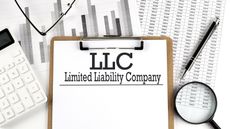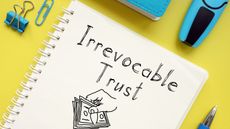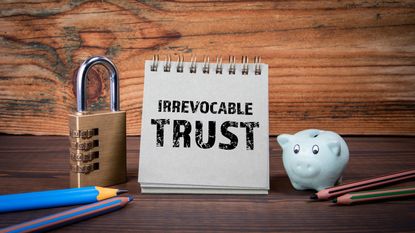
Rustin Diehl, JD, LLM
Rustin Diehl advises clients on tax, business and estate planning matters. Rustin serves as an adjunct professor, frequent speaker and is current or former chair of professional associations. Rustin is a prolific author and has published many technical and popular articles on estate and business issues, as well as drafting and advising legislators in developing numerous statutes pertaining to trust and estate and business planning, creditor exemption planning and digital asset (blockchain) trusts and blockchain entities known as decentralized autonomous organizations.
Rustin has a Juris Doctor from the University of Utah and an LLM from Georgetown University, where he was a fellow in the Institute for International Economic Law.
Email: Rustin@Allegislaw.com | Website: www.allegislaw.com
Latest articles by Rustin Diehl, JD, LLM
-

LLCs: Power Tools That Can Create Big Problems
Forming an LLC for your business might seem like a straightforward endeavor, but if you don't know exactly what you're doing, trouble could follow.
By Rustin Diehl, JD, LLM
-

How Trusts Can Be Used to Protect LLCs From Creditors
Combining limited liability companies with domestic asset protection trusts can achieve maximum asset protection.
By Rustin Diehl, JD, LLM
-

Limited Liability Companies (LLCs): How Assets Are Protected
An LLC can prevent problems with assets within the LLC from affecting assets outside the LLC, but there are limits to asset protection.
By Rustin Diehl, JD, LLM
-

This Trust Strategy Can Reduce Your Taxes Big-Time
Upstream basis planning can help younger wealthy people pay less taxes on highly appreciated assets if they appoint an aging relative as a trust beneficiary.
By Rustin Diehl, JD, LLM
-

This Double-Dip Trust Benefit Really Is Too Good to Be True
Let's clear up the confusion among some trust makers and taxpayers over how grantor trust status affects the step-up in basis and estate tax exclusion.
By Rustin Diehl, JD, LLM
-

Gift and Estate Tax vs Capital Gains Tax: Which Is Less?
Capital gains tax rates might be lower than the gift and estate tax rate, but how you handle your estate and whether you use a trust can make a big difference in taxes owed.
By Rustin Diehl, JD, LLM
-

Repeal the Death Tax? These Are the Taxing Trade-Offs
Getting rid of the death tax (aka the estate tax) might sound like a great idea, but more people could pay higher taxes under the capital gains tax regime.
By Rustin Diehl, JD, LLM
-

How to Handle Irrevocable Trust Assets Tax-Efficiently
Irrevocable trusts can be structured so that trust property is either included in the potentially taxable gross estate or removed. What are the pros and cons?
By Rustin Diehl, JD, LLM
-

Should You or the Trust Pay a Trust's Income Taxes?
Irrevocable trusts can be set up so that the trust maker no longer pays income taxes, and the taxes are instead paid by the trust. What are the pros and cons?
By Rustin Diehl, JD, LLM
-

Irrevocable Trusts: Less Control Equals More Asset Protection
Balancing the costs and benefits of surrendering control is key when ensuring a trust maker’s assets are properly managed and distributed the way they want.
By Rustin Diehl, JD, LLM
-

Ins and Outs of Domestic Asset Protection Trusts (DAPTs)
You can create this type of self-settled irrevocable trust to protect your assets for yourself, rather than for someone else, but there are limits.
By Rustin Diehl, JD, LLM
-

With Irrevocable Trusts, It’s All About Who Has Control
An irrevocable trust must be carefully funded, structured and managed to achieve both asset protection and tax planning.
By Rustin Diehl, JD, LLM
-

Revocable Trusts: The Most Common Trusts in Estate Planning
Revocable trusts allow the trust maker complete control over the assets and can be quite efficient when it comes to capital gains and income taxes.
By Rustin Diehl, JD, LLM
-

How Quitclaim Deeds Can Cause Estate Planning Catastrophes
A lot can go wrong (including inadvertent law-breaking) if you choose to go the easy route rather than using a trust to transfer real estate to your child.
By Rustin Diehl, JD, LLM
-

To Avoid Probate, Use Trusts for Estate Planning
How revocable and irrevocable trusts ensure assets go to beneficiaries without them having to endure the long, expensive and public process of probate.
By Rustin Diehl, JD, LLM
